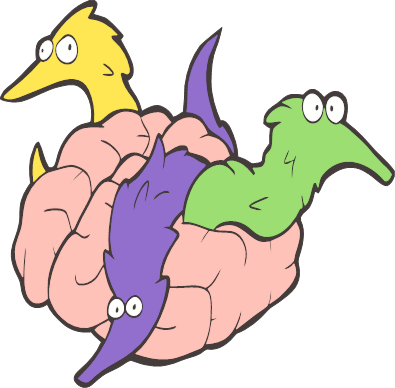I spent my whole life up until 4 months ago not reading any of his books even though I love horror. I read Thinner and loved it. Since then I've read 14 books and loved each and everyone. I'm reading Cujo at the moment and getting ready for the GOODBOY to break my heart and make me cry.
11.22.63 was unexpectedly brilliant for a timey wimey romance focused on Lee Harvey Oswald. Nothing compares so far to IT though. Pet Semetary also genuinely scared me but I guess it's because my son in the same age as Gabe in the book.
![]()
I really enjoyed the Dark Tower series, even with some of the extremely parts, and the most egregiously schlocky bits (like the first third of Wolves of the Calla).
parts, and the most egregiously schlocky bits (like the first third of Wolves of the Calla).
But I was also looking back on the whole cosmology, with which he intentionally encompasses his other works, and realised just how liberal/reactionary ( ) the setting is.
) the setting is.
Like, the ultimate force of evil is 'the Red', a chaotic force of homogenization that is trying to reclaim the world it used to be in control of. The good side is 'the White', an organising force that literally settled and colonised reality*. Its main hero is the last descendant of the true bloodline of kings. The villains' main forces are lowlives and criminals and barbarians, who are riled up and directed by the whispering of a hidden puppeteer that wants to serve the Red because he's simply power-hungry and insane and evil. Their secret signs and slogans show up all over the place as graffiti. They destroy the good kingdom, and in its place build - nothing, just a barbaric wasteland. They hide there as they work on their secret plan to dissolve reality back into cosmic soup - which will probably kill everyone involved in the plan, but they're just so dang ideologically committed to destroying the world that they're gonna do it anyway. The main allies the good guys come across are usually
American yeomanryhonest hardworking frontier farmers.(* To be fair, in a couple of the books not in the main Dark Tower series they're called 'the Purpose' and 'the Random', and implied to be in a kind of harmonic balance, but the agents of 'the Random' sure seems to only do evil things even in those books.)
To protect a cosmically important Macguffin in 'our' world from destruction, the good side (inadvertently) influences a businessman to set up a company that, by the will of the universe, becomes financially successful and then builds a skyscraper on the lot the Macguffin is in. When the good guys stumble into it by accident, it's described as a heavenly place where everyone is perfectly happy and content, subconsiously doing the work of
the invisible hand of the marketthe Tower (never mind that any American Fortune 500 company is axiomatically generating a mountain of burning skulls somewhere). One of the most important bases of the evil side in 'our' world is just a sketchy dive bar/restaurant. All the other power structures in the real world are just neutral, or if they're evil it's because they were subverted by their leader working for the bad guys.And the, somewhat divisive, ultimate conclusion of the series is (mega spoilers if you ever plan on reading the series)
Roland enters the Dark Tower, and inside he finds the story of his own life recorded on each floor until at the top he steps out of a door that puts him right back at the start of the first book. Which I thought was fine at the time, even good as a kind of statement about literature and how that world only exists as long as there's a story being told in it, and that story forms the central axis that the world spins around - a philosophically idealist model of a world but still an effectively written one. But now I can't help seeing it also as an 'end of history' type cop-out - he can imagine the world being destroyed, but not becoming meaningfully different in any way. It has to trundle on, telling the same story again and again.
To be fair, at the new begininning Roland has a special object he didn't have the previous time around, and it's implied that this time things will go differently - maybe even be resolved - but the imagination doesn't stretch to what that resolution actually is. I noticed that in a few works that came out around that time, deep in the Fukuyama era, that are "about" the end of history and the postmodern condition but which leave their protagonists a way out, like the first Matrix (which Baudrillard got mad about!) or Metal Gear Solid 2. Maybe it was a subconscious understanding that no, history hasn't actually ended, 'the system' is not inescapable and the fundamental structure of society can still be changed for the better.
I'll admit they're uncharitable readings that I've distilled way down to the barest essence, but I stand by them and I think they're pretty typical of the unexamined liberal that show up in works all over the place.
that show up in works all over the place.
Edit: you might be able to tell I've been cooking this up for a while
I could talk about the Dark Tower series all day. Regarding the ending of book 7:
spoiler
Personally, I don’t put too much thought into it because I don’t think King did, either. In the epilogue to that book, King basically puts his readers on blast for demanding an ending to the series. I think he was like “fine, you want me to end this, here’s an ending.” And it’s really just very contrived and dull. I think he just made that ending to make an ending and didn’t feel particularly inspired. I did read the 8th book in the series he wrote years later (The Wind Through the Keyhole) and I thought it was a much better way to conclude the series.